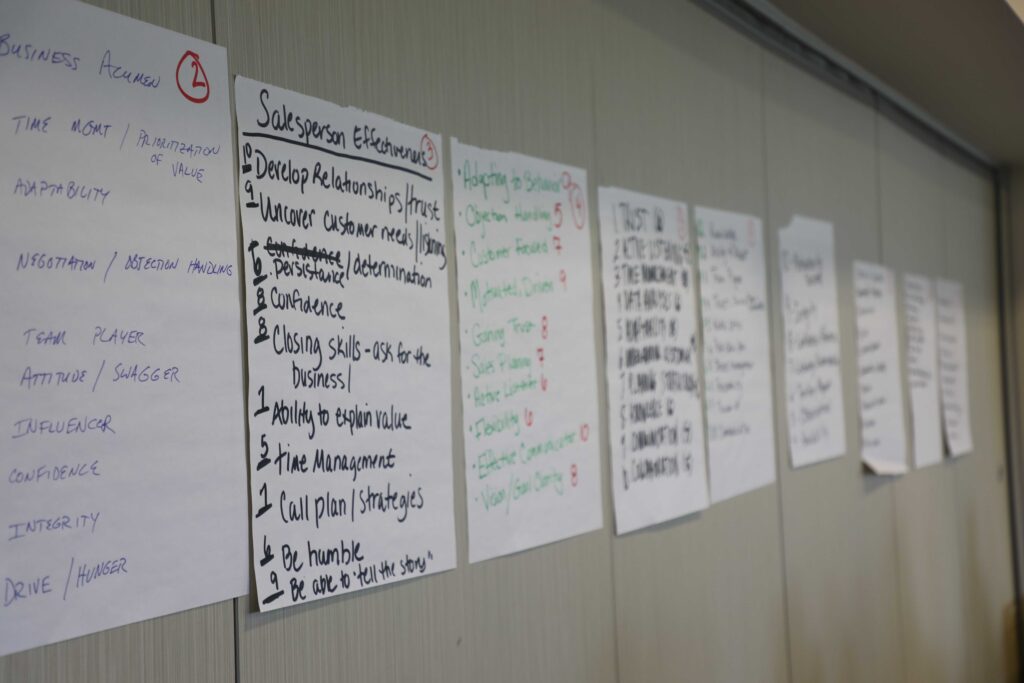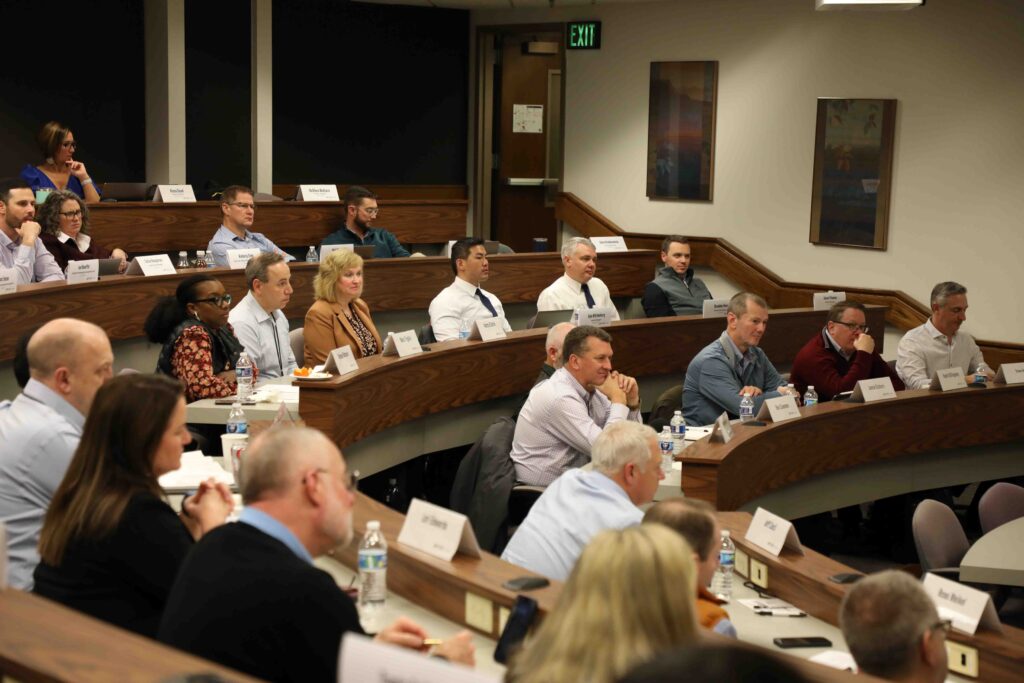Like most of you, I wear more than one hat at work. At Purdue, I’m the director of the Center for Food and Agricultural Business (CAB), I coordinate our Sales and Marketing degree program for undergraduates, and I also do research. I enjoy all of these roles, but today I want to share something I’ve been learning from my teaching hat.
This fall, for the first time in about a decade, we required our senior sales capstone students to complete a real-world selling project. I serve as their “sales manager,” and they must actually sell a product before earning their degree.
For years, that product was Cutco knives, and if you’re one of our alumni who went through it, you probably remember the grind. It was a great learning experience, but it is largely a consumer product and times have changed. There are far fewer salespeople today who make actual sales calls on consumers. Most of our graduates now move into business-to-business sales roles calling on farmers, retailers, doctors, or other businesses. So, this year, we gave them a new challenge: sell one of CAB’s executive education programs.
That’s right – they’re out selling professional development programs, including a sales management program I’ll be leading with a colleague from Texas A&M later this fall. It’s not an easy assignment. It’s an intangible product, often unsought good. Students must learn the product, identify qualified prospects, set appointments, build rapport, ask meaningful questions, communicate value, handle objections, close, and follow up. It’s the entire sales process.
And here’s what surprised me: they’ve leaned into it. Hard work, scary conversations with professionals, grades riding on real results – instead of resisting, they’re excited. They see the value, they want the experience, and they’re proving they can do it.
Secondly, they’re not bad at it. Our center staff and I have worked closely with some of them and participated in joint calls. Their preparation has been good, their ability to adapt the approach based on customer’s stated goals has been pretty good, and they’ve not shied away from objections too quickly. I suspect they will be pretty close to real-world sales performance, with a success rate between 20% and 30% by the time they get to the end.
TIMELESS SALES LESSONS
Even more importantly, their experiences have reminded me of some timeless lessons that apply to every salesperson in agribusiness:
- Ask before you chase. Checking a box by calling on the wrong prospect wastes everyone’s time. Doing the homework up front saves time and builds credibility.
- Ask about goals, not products. Studens quickly learned that the best questions aren’t about what a customer thinks of a product, but about the challenges and goals the customer is working toward.
- Respect their time. Just because a meeting time works for you doesn’t mean it works for your customer. Flexibility and adaptability matter.
- Plans change. Every call plan can deviate from the script. That doesn’t make planning any less useful – it makes preparation even more critical.
- “Not now” isn’t “no.” Timing matters. A delay doesn’t mean the door is closed; it means follow-up is part of the job.
- Celebrate progress. Little successes that demonstrate progress can be just as fun (and important) as getting a big sale.
These are simple lessons, but good reminders. Sales is challenging work, yet it’s also a privilege. Having the chance to earn someone’s time and attention – and then being trusted enough to help them solve a problem – is no small thing.
So, while I’m proud of our students for taking on this challenge, I’m also grateful for the reminder that the fundamentals never really change. Whether you’re just entering the profession or have been in it for decades, sales still come down to discipline, empathy, preparation and persistence.
And if you’d like one of our seniors to practice their pitch on you – say, about investing in sales management training for you or your team – let me know. I’m glad to give a referral to a capable young seller.





